
Recognizing April as Fair Housing Month, the City of Tallahassee, in partnership with the Big Bend Housing Partnership, will host our annual Housing Symposium on Thursday, April 27, 2023 9 a.m. - 5 p.m. at the AC Hotel, located at 801 S. Gadsden Street, Tallahassee, FL 32301. This free event will include four panel discussions with local and national leaders and subject matter experts as they tackle topics ranging from housing rights to preventing housing discrimination.
The Fair Housing Act (FHA) was designed to protect Americans from discrimination in the sale, rental, and financing of housing based on color, race, national origin, and religion. The Act later extended to sex, disability, and family status. National Fair Housing Month in April increases efforts to end housing discrimination and raises awareness of fair housing rights. The month also commemorates the assassination of Rev. Dr. Martin Luther King Jr. in 1968 and his contributions to the Civil Rights Movement.
SCHEDULE
FAIR HOUSING FACTS
PRESENTERS
SPONSORS
2023 Big Bend Housing Agenda
7:30 to 9:00 a.m.
Registration and Morning Starter
9:00 a.m.
Welcome & Greetings
City of Tallahassee Leadership
Leon County Commissioner Leadership
9:20 a.m.
Conference Overview
Nicole Everett, Moderator
9:30 a.m.
Opening Session: “Strengthening Our Communities”
Moving in the Right Direction to Advance Fair and
Affordable
Housing
Marvin Nesbitt, Senior Director, Community Development
Atlanta, Georgia
Shawn Duncan
DMin | Director of Training & Consulting
FCS | The Lupton Center
Atlanta, GA
11:15 a.m.
Session I: “What You Should Know about Homeowners and Renters Insurance”
Tasha Carter, Florida Insurance Consumer Advocate
12:30 p.m.
Lunch
1:30 p.m.
Session II: Financing Affordable Housing to Promote Equitable Lending”
Kody Glazer, Legal and Policy Director
2:45 p.m.
Session III: “The State of Housing in the Florida Big Bend Area"
Florida Housing Coalition
3:45 p.m.
Session IV: Advancing Housing Protections for Survivors of Domestic Violence, Dating Violence, Sexual Assault and Stalking - Panel Discussion
Kelly O’Rourke, Domestic Violence Council
Shan Pompey, Refuge House
Jennifer Dritt, Florida Council Against Sexual Assault
5:00 p.m.
Closing Remarks
The Fair Housing Act (FHA) was designed to protect Americans from discrimination in the sale, rental, and financing of housing based on color, race, national origin, and religion. The Act later extended to sex, disability, and family status. National Fair Housing Month in April increases efforts to end housing discrimination and raises awareness of fair housing rights.
Moderator
Nicole Everett
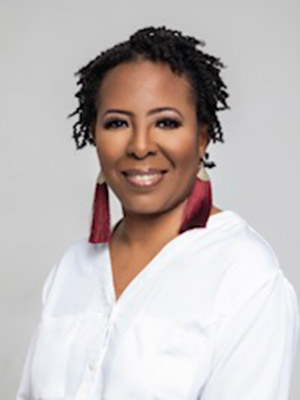
Nicole Everett is a Conversationalist, Media Content Producer, Mental Health Advocate and Connector. For more than 20 years, Nicole worked in the affordable housing arena for a Tallahassee non-profit organization as well as across the state of Florida. She currently serves as a Behavioral Health Navigator with the local Health Department, where she assists individuals and groups with mental health and substance abuse resources.
A native of Miami, Florida, Nicole earned a Bachelor of Science degree in Business Administration from the Florida Agricultural & Mechanical University (FAMU). She enjoys volunteering her time and talents to non-profit boards and community committees, such as Big Bend Habitat for Humanity, SHE Academy, Working Class Wednesday and the Soul of Southside Festival planning committee, to name a few. Supporting local individuals and organizations is very important to Nicole and she embodies the sentiment "we've got to support what we want to keep".
When she's not working and volunteering, Nicole loves
hosting and producing her video talk show, Conversations With Nicole (CWN). Since 2016 CWN, has been connecting the community through conversations, with more than 200 pre-recorded shows cataloged. As a mental health advocate Nicole, conducts live virtual broadcasts on social media twice weekly with clinicians of color as her guest, in an effort to end the stigma and normalize dialogue around mental health and wellness in black and brown communities.
Presenters
Tasha Carter

Tasha Carter joined the Department of Financial Services in 2003 and previously served as the Director of the Division of Consumer Services for nearly 9 years where she led a team of more than 100 professionals who advocated and assisted more than 300,000 insurance consumers annually. In this role, Ms. Carter tirelessly advocated for Florida’s insurance consumers by engaging with the insurance industry, promoting education and working closely with Chief Financial Officer Jimmy Patronis. Additionally, Ms. Carter also spearheaded the CFO’s outreach initiatives to promote financial education for all Floridians.
Ms. Carter currently serves as Florida’s Insurance Consumer Advocate (ICA). As the ICA, Ms. Carter is committed to using her 20 years of insurance experience to find consumer-focused policy solutions and ensure consumers’ interests are represented when insurance decisions are made. Ms. Carter’s professional experience includes 20 years of leadership, professional responsibility and broad experience in regulation, consumer advocacy and education and outreach.
Shawn Duncan

Dr. Shawn Duncan is the Director of Training and Consulting for FCS | Focused Community Strategies. His research and professional work have focused on factors that lead to social change. He is a member of the Atlanta Mayor’s and Atlanta Public Schools’ research group on thriving neighborhoods. Dr. Duncan is also a part of the Purpose Built Communities’ Pacesetters task force that is working to define the key indicators of impact for place-based work. He also directs a nation-wide initiative funded by Lilly Endowment Inc that is building place-based, cross-sector coalitions to impact chronic material poverty. He has been a pastor, coach, professor, nonprofit founder, and consultant.
Jennifer L. Dritt
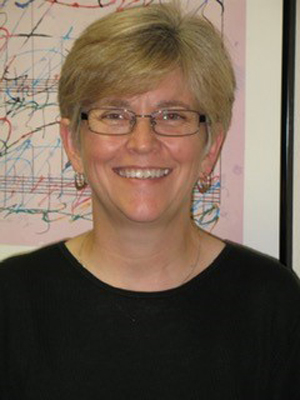
Jennifer L. Dritt, LCSW, is the Executive Director of the Florida Council Against Sexual Violence, a position she has held for more than nineteen years. She has been involved in the movement to end sexual violence for forty-four years, initially as an advocate and trauma therapist, and more recently as an administrator and policy maker. Ms. Dritt has served on the Board of Directors of the Tennessee Coalition Against Domestic and Sexual Violence, the National Coalition Against Sexual Assault, and the Florida Network of Children’s Advocacy Centers. She received her M.S.W. from the Smith College School for Social Work, is licensed to practice independently in Florida, and provides consultation and expert witness services in sexual violence-related civil and criminal cases.
Kody Glazer
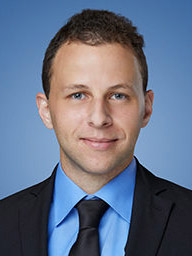
Kody Glazer is Legal and Policy Director of the Florida Housing Coalition with expertise in land use law, affordable housing planning and development, and policy implementation. Kody provides technical and legal assistance to local governments, community-based organizations, and policymakers on inclusionary housing policies, community land trusts, fair housing, land use, environmental law, and the law generally as it relates to housing. As Legal and Policy Director, he leads the Coalition's advocacy efforts at all levels of government, including as lead of the Sadowski Affiliates, and has expertise drafting state legislation and local housing ordinances and policies. Prior to joining the Coalition, Kody clerked for the National Fair Housing Alliance on issues related to fair housing and equitable opportunity. Kody graduated Magna Cum Laude from the Florida State University College of Law, where he was a member of the Florida State University Law Review and the Journal of Land Use & Environmental Law.
Emily Mitchem
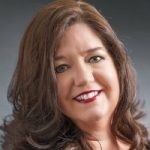
Emily Mitchem is the Executive Director of Refuge House, the domestic and sexual violence center serving the eight county Big Bend area. She has served in this role since January 1, 2021. Prior to her role as Executive Director, she served as the Assistant Director for twelve years and was responsible for all programmatic activities, contract management, and quality assurance practices throughout all eight counties we serve. Before her time at Refuge House, she worked for several years with men who were adult survivors of childhood sexual abuse as an addictions counselor, and as a counselor for domestic violence, adult sexual assault and prostitution survivors within the Department of Corrections.
Marvin Nesbitt, Jr.
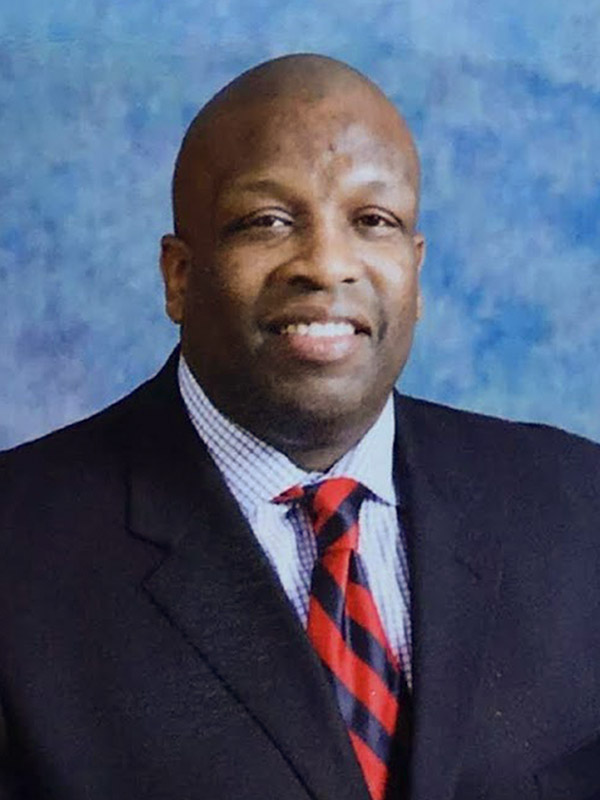
Marvin Nesbitt, Jr. has committed his entire career to facilitating positive outcomes and success for society’s most vulnerable and the communities in which they reside. Today, he serves as Sr. Director of Community Development with Focus Community Strategies (FCS), a place-based Community Development Corporation working in the Historic South Atlanta neighborhood in Atlanta, Georgia. At FCS, Marvin is teams with a group of talented directors to lead the organization’s Neighborhood Engagement, Affordable Housing, and Economic Vitality efforts.
Prior to joining FSC, Marvin has worked as an independent consultant providing his skills in human services and community development to numerous nonprofit, and government agencies in the areas of planning, implementation and evaluation of service delivery systems, community engagement, and the development and writing of HUD Choice Neighborhood Grant People Strategies.
Additionally, Marvin has served in key leadership roles with organizations whose missions involved improving the quality of life for those impacted by lack of access to quality affordable housing and other mainstream services and resources necessary for success. He was the Director of Resident Wellness & Empowerment with the Virgin Islands Housing Authority (VIHA) overseeing the re-engineering of the agency’s Resident Services Department, VP of Development & Community Engagement with Atlanta Center for Self Sufficiency (ACSS) leading all agency fundraising and community engagement efforts, Senior Vice President & Chief Program Officer with Action Ministries, Inc. overseeing the agency’s Hunger, Housing and Education program operations, and had a successful 12-year career with the Atlanta Housing Authority (AHA) where he oversaw the agency’s Human Development and Resident Engagement activities.
Marvin holds a Bachelors of Social Work from the University of North Carolina at Charlotte and a Masters of Social Work from the University of Illinois Champaign-Urbana and a member of Alpha Phi Alpha Fraternity, Inc. Originally from Spartanburg, SC, he has made Atlanta, Georgia his home.
Kelly O'Rourke
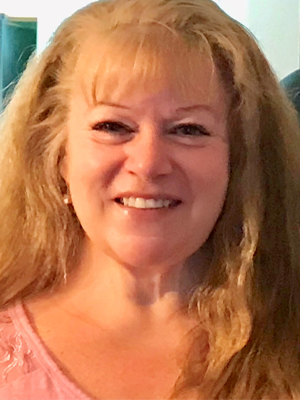
Kelly O'Rourke is a California transplant who has lived in Tallahassee since she came to FSU a few decades ago. She has degrees in Theater and Communications as well as a Masters in Social Work and Gerontology and a PhD ABD in Social Work. Currently she is a Research Associate with the FSU Institute for Family Violence Studies as well as the Director of the Tallahassee Domestic Violence Coordinating Council. Kelly specializes in domestic violence and supervised visitation research, and with the DVCC, provides dozens of workshops on dating abuse, elder abuse, and domestic violence each year.
While some may not realize it, many of the homeless women and children in our community are survivors of domestic violence. Safe housing is crucial to women and children fleeing abuse and she welcome this much needed discussion.
Amanda Wander

Amanda Wander is the Florida Housing Coalition’s Ending Homelessness Team Director. In this role, Wander works closely with Continuums of Care (CoC), local governments, nonprofits, faith-based organizations, service providers, and other stakeholders working to prevent and end homelessness in their communities. Knowing that homelessness is solvable, Wander provides training, technical assistance, and consulting to ensure communities have an effective housing crisis response system. Wander is also a HUD technical assistance provider to Continuums of Care throughout the United States helping to build capacity and navigate complex funding sources. Prior to working with the Coalition, Wander lead an 8 county Continuum of Care and has worked in various behavioral health, and homeless and housing programs including coordinated entry, Homeless Management Information System (HMIS), permanent supportive housing, and street outreach. As a strong advocate for housing first and with a passion to resolve and prevent chronic homelessness through utilizing data, evidence-based practices, and providing effective interventions, Wander has dedicated the past 15 years of her career to the implementation of solutions to ending homelessness. Wander holds a bachelor’s degree from Florida State University and has served as an HMIS Administrator, HUD Technical Advisor, and Trainer as well as a CoC Executive Director.
Fair Housing Symposium In-Person Registration
Fair Housing Facts
There are seven protected classes under the Federal Fair Housing Act. They include:
- Race
- Color
- National Origin
- Religion
- Sex (including gender identity and sexual orientation)
- Familial Status
- Disability
In addition, Florida, Fla. Stat. §§ 760.20-760.60 also makes it illegal for any landlord to discriminate based on disability and familial status.
How is the Equal Credit Opportunity Act (ECOA) different than the Fair Housing Act? Both Acts offer protection against discrimination. The ECOA forbid creditors to discriminate based on race, color, religion, national origin, sex, marital status age, or if applicants receive income from a public assistance program. Where the ECOA specifically protects borrowers against discrimination, the Fair Housing Act forbids discrimination in all aspects of residential real-estate related transactions (including rentals) in the seven protected classes previously listed.
According to the U.S. Department of Housing and Urban Development (HUD), the following are prohibited examples of discrimination in mortgage lending*:
- Refusal to make a mortgage loan or refinance a mortgage loan.
- Refusal to provide information regarding loans.
- Imposing different terms or conditions on a loan, such as different interest rates, points, or fees
- Refusal to purchase a loan or set different terms or conditions for purchasing a loan.
- Discrimination in providing financial assistance for purchasing, constructing, improving, repairing, or maintaining a dwelling or other financial assistance secured by residential real estate.
It is illegal for anyone to:
- Threaten, coerce, intimidate, or interfere with anyone exercising a fair housing right or assisting others who exercise that right.
- Advertise or make any statement that indicates a limitation or preference based on race, color, national origin, religion, sex, familial status, or handicap. This prohibition against discriminatory advertising applies to single-family and owner-occupied housing that is otherwise exempt from the Fair Housing Act.
Additional Protection if You Have a Disability
If you or someone associated with you:
- Have a physical or mental disability (including hearing, mobility and visual impairments, chronic alcoholism, chronic mental illness, AIDS, AIDS Related Complex and mental retardation) that substantially limits one or more major life activities,
- Have a record of such a disability, or
- Are regarded as having such a disability. your landlord may not:
- Refuse to let you make reasonable modifications to your dwelling or common use areas, at your expense, if necessary, for the disabled person to use the housing. (Where reasonable, the landlord may permit changes only if you agree to restore the property to its original condition when you move.)
- Refuse to make reasonable accommodations in rules, policies, practices, or services if necessary, for the disabled person to use the housing.
Requirements for New Buildings
In buildings that are ready for first occupancy after March 13, 1991, and have an elevator and four or more units:
- Public and common areas must be accessible to persons with disabilities,
- Doors and hallways must be wide enough for wheelchairs, and
All units must have:
- An accessible route into and through the unit,
- Accessible light switches, electrical outlets, thermostats, and other environmental controls,
- Reinforced bathroom walls to allow later installation of grab bars, and o Kitchens and bathrooms that can be used by people in wheelchairs. If a building with four or more units has no elevator and will be ready for first occupancy after March 13, 1991, these standards apply to ground floor units.
These requirements for new buildings do not replace any more stringent standards in State or local law.
Housing Opportunities for Families
Unless a building or community qualifies as housing for older persons, it may not discriminate based on familial status. That is, it may not discriminate against families in which one or more children under age 18 live with:
- A parent,
- A person who has legal custody of the child or children, or
- The designee of the parent or legal custodian, with the parent or custodian's written permission. Familial status protection also applies to pregnant women and anyone securing legal custody of a child under 18. Exemption: Housing for older persons is exempt from the prohibition against familial status discrimination if:
- The HUD Secretary has determined that it is specifically designed for and occupied by elderly persons under a Federal, State, or local government program, or
- It is occupied solely by persons who are 62 or older, or
- It houses at least one person who is 55 or older in at least 80 percent of the occupied units and adheres to a policy that demonstrates an intent to house persons who are 55 or older.
A transition period permits residents on or before September 13, 1988, to continue living in the housing, regardless of their age, without interfering with the exemption.
Sponsors
View additional information and sponsors for this event.